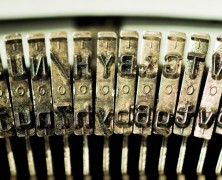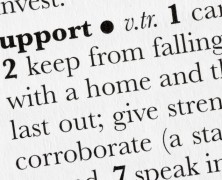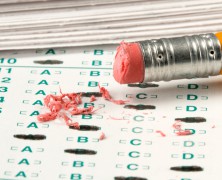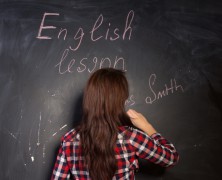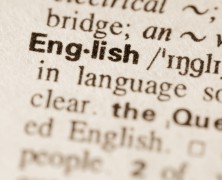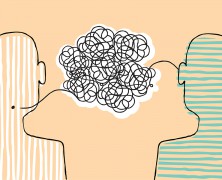Group discussions and one-on-one teaching highlighted this Chinese major’s exchange to Britain. The English and Chinese versions of Kafka’s works are different. He reads about history and politics in TIME and the SCMP.
5CK569
posted by admin
Reading the SCMP and writing commentaries or summaries taught this Arts major vocabulary and grammar which are useful for the DSE and further studies. The SCMP let him learn more about health, technology and Hong Kong history.
5CK579
posted by admin
Slang in movies and TV series expanded this Science major’s vocabulary. She likes stories about vampires. Clipping news articles in secondary school helped build her vocabulary.
5CK598
posted by admin
Exercises based on the SCMP taught this Social Science major how to find the key points in the newspaper articles. He was interviewed about stargazing in Hong Kong for the Young Post.
5CK599
posted by admin
A primary school teacher helped this Counselling major learn vocabulary. In secondary school, she had to write summaries based on newspapers.
5CK601
posted by admin
An ESL class in primary school taught this Actuarial Science major grammar and writing, idioms and poetry. She was eager to read children’s book series. Teachers encouraged her to read newspapers and magazines.
5CK604
posted by admin
Watching TV programmes and movies enabled this Philosophy major to learn through listening to the actors. He enjoyed reading the newspaper articles that his teacher prepared for the class. He uses the dictionary for university readings.
5CK620
posted by admin
An ELT lecturer shared personal experiences with this Anthropology major’s class. Some ethnographies are written as if they were telling stories about culture and human behaviour. She once read about foot binding in the SCMP.
5CK627
posted by admin
Watching and discussing movies taught this Quantitative Finance major speaking and listening. Secondary school English classes in the UK focused on practising for exams. Reading newspapers and writing reports let her learn vocabulary and writing style. She reads for her university classes.
5CK637
posted by admin
NETs who allowed active learning in the classroom impressed this Cultural Management major. In secondary school, he was forced to buy the SCMP and read it.
5CK643
posted by admin
An enthusiastic teacher was willing to do extra work for this Nursing major. She read newspapers every day in secondary school to learn new vocabulary.
5CK646
posted by admin
Reading the Oxford Dictionary in his first year of high school exposed this Management major to a lot of vocabulary. He reads the Financial Times and books about trading.
5CK651
posted by admin
A teacher quizzed this Cultural Management major on the vocabulary found in the newspaper every day. A difficult reading exam motivated her to improve English by reading novels such as Sherlock Holmes.
5CK653
posted by admin
Homework based on reading and commenting on newspaper articles trained this Nursing major’s self-learning skills. Understanding journals on medical issues requires researching additional information.
5CK660
posted by admin
Watching Friends together made this Human Resources major and other students think and talk in English. In an exchange to Canada, she needed to read the local newspapers for an assignment.
5CK668
posted by admin
English classes taught completely in the language were hard for this Computer Science major. He could choose his own topics for the news sharing in secondary school.
5CK683
posted by admin
A study tour to Canada enabled this Business major to communicate with native speakers and learn about the culture. Reading BBC news and the SCMP every day enhanced her reading skills.
5CK697
posted by admin
A private tutor from a different background exposed this Business major to another culture. She read The Phantom of the Opera and Harry Potter with her teachers. She likes reading the SCMP and the short articles in Sing Tao Daily.
5CK699
posted by admin
Attending a summer course in Australia gave this Economics major the opportunity to speak English everywhere. He reads about Hong Kong and international relations in newspapers.
5CK703
posted by admin
This Business major learnt how to argue in secondary school debate competitions. She reads the SCMP to get updated on current affairs in Hong Kong.
5CK738
posted by admin
An English teacher’s lessons included examples of how to use new vocabulary. This Chinese major has read the Young Post and the Bible.
5CK768
posted by admin
NETs in primary school designed interactive games and activities for this Business major to practise English. Articles for a law course were difficult. Reading newspapers enhanced his vocabulary.
5CK772
posted by admin
Taking a course recommended by her school in Form Four exposed this Translation major to public speaking and acting in a drama. Her class did a weekly analysis of a newspaper article. Her favourite book is Harry Potter.
5CK776
posted by admin
Learning exam skills for the DSE didn’t enhance this Journalism major’s English level. She learnt about different topics and expanded her vocabulary by reading the SCMP before taking the DSE.
5CK777
posted by admin
Drama lessons in junior secondary taught this Social Work major how to write and perform a script. She always read newspapers in secondary school. The Young Post is easy to understand.
5CK788
posted by admin
Preparing for the DSE speaking test gave this Nursing major a lot of chances to practise English. She read newspapers in secondary school. She now reads literature for her studies.
5CN022
posted by admin
Notes prepared by an English teacher included materials from the South Morning China Post and TIME. He read Charlie and the Chocolate Factory because of the movie.
5CN189
posted by admin
Primary and secondary English classes included drilling, worksheets and drama for this Maths major. He read the SCMP in secondary school. He also reads Reddit.
5CN193
posted by admin
Chatting with foreigners has helped this Government and International Studies major develop a native use of the language. Reading newspapers relates to daily life.
5CN195
posted by admin
Secondary school led this student to be an emcee and take part in writing competitions. She read the newspaper to learn about social issues for the DSE.
5CN199
posted by admin
Failing the A-levels has remained in the memory of this Chinese major. She reads the newspaper.
5CN201
posted by admin
An English summer camp in junior secondary involved morning lessons and afternoon activities with British university students. This Actuarial Science major feels reading newspapers is an effective way to learn about current affairs.
5CN202
posted by admin
The music from the band Westlife was part of this Science major’s English learning in high school. She also read the South China Morning Post every morning in school.
5TT016
posted by admin
This student had to read case studies while preparing presentations for a university business language course. He also read South China Morning Post for a DSE project.
5TT045
posted by admin
Unhappy with her secondary school’s approach to teaching English, this Economics major learned on her own by reading South Morning China Post and BBC news and listening to the radio. She read The Boy in the Striped Pyjamas for a school presentation.
5TT063
posted by admin
Learning how to write a persuasive essay with a foreign teacher in Form 5 helped this Science major to express his own views. He likes to read newspapers to learn more about society.
5TT065
posted by admin
Learning English in university is more interactive and less boring than reviewing DSE past papers for this Science major. She also read the South China Morning Post and discussed the news with her teacher in preparation for the DSE.
5TT089
posted by admin
A secondary school study tour to England involved interacting with people from other countries. Reading the South China Morning Post for weekly newspaper reviews has become easier over time.
5TT145
posted by admin
An extra-curricular class arranged by her mum helped this Management major to expand her vocabulary. Her teachers recommended she read newspaper editorials.

